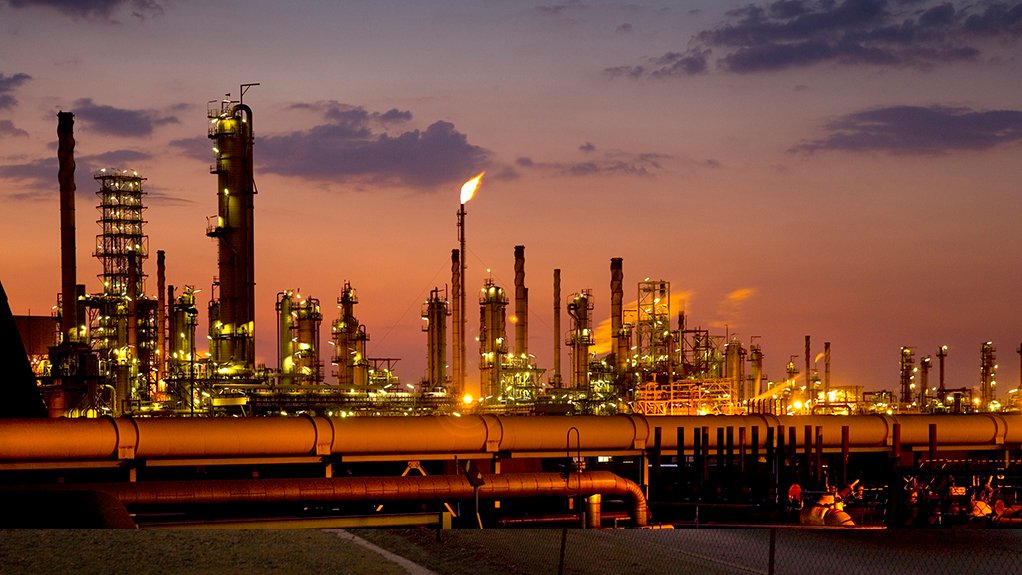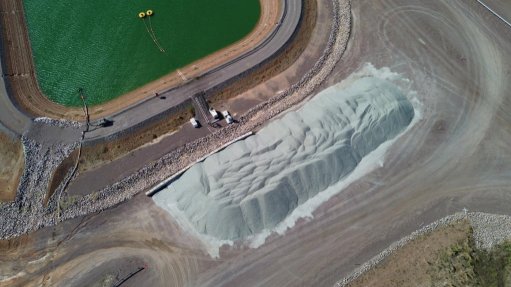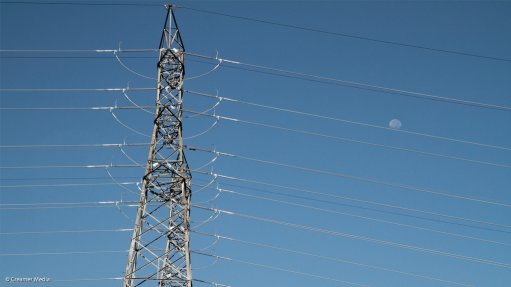Sasol warns carbon tax could prompt it to scale back operations
Sasol, South Africa’s second-biggest greenhouse gas emitter, sees carbon taxes posing a “significant risk” to its business and warned current proposals could cause it to curtail operations and green initiatives.
The government sees the taxes as key to meeting its goal of producing net-zero emissions by 2050, but has faced intense lobbying from companies to make them less onerous.
Earlier this year, the first phase of the new regime -- which will mainly entail setting up the required systems -- was extended by three years until the end of 2025. It is envisioned that companies will get basic tax‐free emission allowances that will be reduced in the four years through 2030, the National Treasury announced in the February budget.
No clear guidance has been issued on how the allowances will be applied or how other offsets will work, according to Sasol CFO Hanre Rossouw. The company’s modeling shows it would become cash-flow negative should the allowances rapidly fall away by 2030.
“If this is the case, it would not make sense for us to decarbonize our operations,” but rather to scale them back in a phased manner, Rossouw said in a reply to questions. “We recognize the role of carbon tax to incentivize the right behaviour, but would warn against the potential unintended consequences of a poorly implemented tax.”
South African state power utility Eskom Holdings has generated nearly all the nation’s electricity from its abundant coal resources for decades, while Sasol has used the mineral to produce fuel and chemicals. A planned transition to cleaner energy sources is proving tricky, with climate considerations having to be balanced against the rights of communities that are dependent on mines and factories, and the need to tackle record-high unemployment.
The Treasury didn’t immediately respond to emailed questions.
The Minerals Council South Africa, which represents Anglo American, Glencore and other mining companies, has also called for greater clarity on how the new levies will work.
ADDITIONAL PRESSURE
The council recognizes a carbon tax can influence the reduction of greenhouse gases, but it is concerned about “the dire negative socio-economic implications that this has on the mining industry, especially now with the uncertainty on whether the allowance will remain or not,” the council said in a reply to questions. A plan to increase the carbon price to at least $30 a ton by 2030, and as much as $120 beyond 2050, will place additional pressure on some already struggling mining operations, it said.
Sasol intends to reduce its own emissions by 30% in the next eight years, which will require an investment of as much as R25-billion and push up production costs. The company is phasing in gas to replace coal and developing green hydrogen production. It estimates that if carbon prices were set at $30 a ton, it would incur an annual carbon tax bill of R20-billion.
Sasol is participating in consultations on draft carbon tax legislation and expects the process to provide further clarification on how the allowances will work.
“We are in no way opposing regulation or a carbon tax, but rather suggesting that other viable regulatory options be considered rather than a rapidly escalating carbon tax rate, without allowances and before mitigation is available to switch and decarbonize,” Rossouw said. “The opportunity cost associated with the carbon tax rates announced in the 2022 budget review is that we cannot pursue growth and take significant capital investment decisions to re-industrialize the country as our current business is at risk of closing.”
Article Enquiry
Email Article
Save Article
Feedback
To advertise email advertising@creamermedia.co.za or click here
Announcements
What's On
Subscribe to improve your user experience...
Option 1 (equivalent of R125 a month):
Receive a weekly copy of Creamer Media's Engineering News & Mining Weekly magazine
(print copy for those in South Africa and e-magazine for those outside of South Africa)
Receive daily email newsletters
Access to full search results
Access archive of magazine back copies
Access to Projects in Progress
Access to ONE Research Report of your choice in PDF format
Option 2 (equivalent of R375 a month):
All benefits from Option 1
PLUS
Access to Creamer Media's Research Channel Africa for ALL Research Reports, in PDF format, on various industrial and mining sectors
including Electricity; Water; Energy Transition; Hydrogen; Roads, Rail and Ports; Coal; Gold; Platinum; Battery Metals; etc.
Already a subscriber?
Forgotten your password?
Receive weekly copy of Creamer Media's Engineering News & Mining Weekly magazine (print copy for those in South Africa and e-magazine for those outside of South Africa)
➕
Recieve daily email newsletters
➕
Access to full search results
➕
Access archive of magazine back copies
➕
Access to Projects in Progress
➕
Access to ONE Research Report of your choice in PDF format
RESEARCH CHANNEL AFRICA
R4500 (equivalent of R375 a month)
SUBSCRIBEAll benefits from Option 1
➕
Access to Creamer Media's Research Channel Africa for ALL Research Reports on various industrial and mining sectors, in PDF format, including on:
Electricity
➕
Water
➕
Energy Transition
➕
Hydrogen
➕
Roads, Rail and Ports
➕
Coal
➕
Gold
➕
Platinum
➕
Battery Metals
➕
etc.
Receive all benefits from Option 1 or Option 2 delivered to numerous people at your company
➕
Multiple User names and Passwords for simultaneous log-ins
➕
Intranet integration access to all in your organisation





















